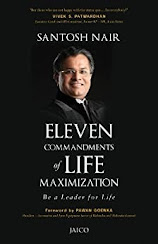In the first place, the myth that the body is a ‘structure’ should be taken out of mind. It is in fact a set of processes. In order to ensure the organic processes happen as they should, you need to be in tune with nature and exercise should be treated as a non-negotiable activity of your daily life.
The simplest form of exercise is walking; it has a multitude of benefits both physical and psychological. A simple walk on a daily basis puts you on sound health. The testimony comes from none other than a grand old man of 102 years from Mahabubnagar district (Ayyavaripalli village in Veepanagundla Mandal ) of Andhra Pradesh.
Sesha Sarma, by profession a family priest, wakes up at the crack of dawn and starts his fitness regimen with 2 km walking even at this ripe age. When asked about the secret of his healthy life, he says that he has been walking and doing yoga uninterruptedly for the last 72 years.
Hippocrates, the ancient Greek physician and father of western medicine sagely said that “Walking is man’s best medicine. An early morning walk is a blessing for the whole day. One of America’s greatest philosophers Ralph Waldo Emerson used to finalize his talks during his morning walks.
Henry David Thoreau in his much acclaimed essay titled ‘Walking’ (1862) says that walking only comes by the grace of God. It requires a direct dispensation from heaven to become a walker. T o support his assertion, Thoreau says that he can not preserve his health and spirits unless he spends four hours a day at least—and often more than that—sauntering through the woods and over the hills and fields, absolutely free from all worldly engagements.
While pitying non-walkers, Thoreau says that “When sometimes I am reminded that the mechanics and shopkeepers stay in their shops not only all the forenoon, but all the afternoon too, sitting with crossed legs, so many of them —as if the legs were made to sit upon, and not to stand or walk upon—I think that they deserve some credit for not having all committed suicide long ago.”
On the mechanics of walking, Thoreau says that you must walk like a camel which is said to be the only beast that ruminates when walking. Health experts say that the best way to walk is to swing your arms while at it. Bend your arms at right angles to the elbows and swing them while you walk. This will increase the speed of your walk and keep the body in the aerobic zone (the maximum fat-burning zone).
Research reveals that walking increases the level of endorphins – naturally secreted hormones working in brain which increase the sense of wellbeing. A regular walk boosts the immune system, improves mood, reduces blood pressure apart from controlling weight. It is the best stress buster and keeps the head cool.
When it comes to right gear, wear apparel made of breathable fabric. Also invest in good shoes – a flexible, roomy toe to accommodate foot’s forward thrust; and a smooth sole.
Walking has both physical and psychological benefits. Unless a conscious decision is taken at individual level, fitness will remain as a dream. Experts say that knowledge is of no avail to you if you don't act upon. So all you need in the first place is, walk the talk!



























